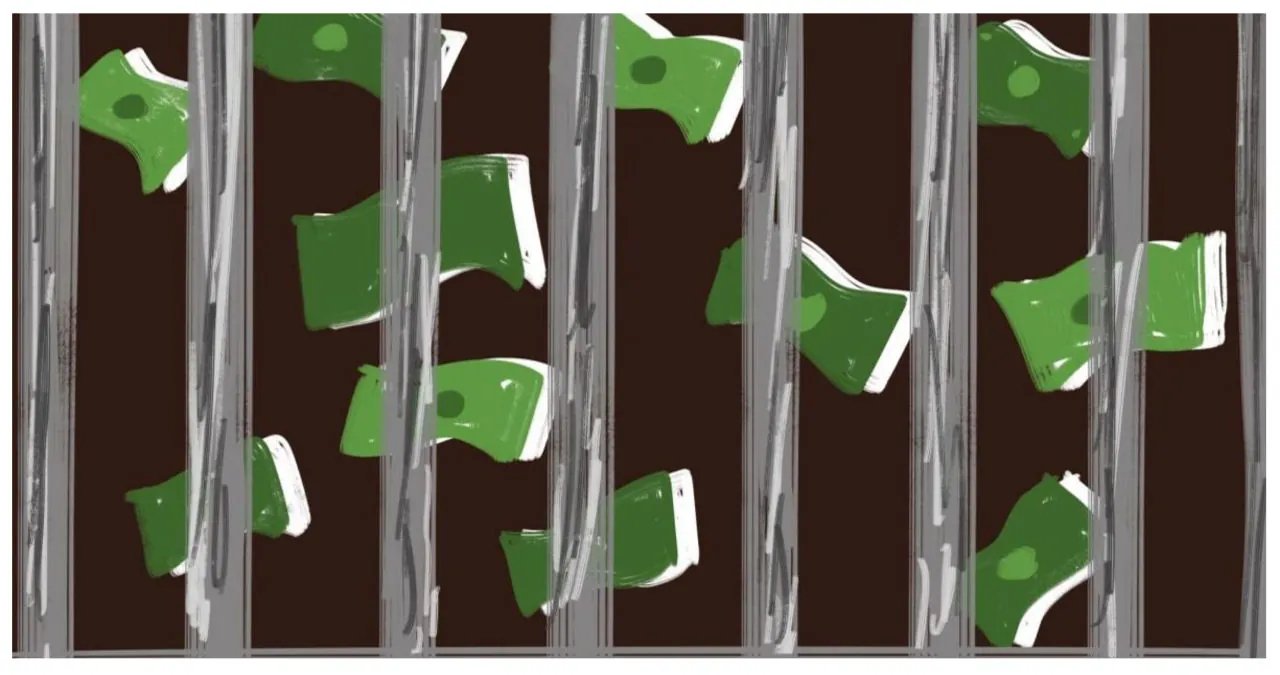In September, Illinois made history as the first state in the United States to abolish cash bail. Now, after four months, experts, advocates, and the general public are starting to witness the impact of this groundbreaking reform.
The Pretrial Fairness Act, which was passed by the state legislature in January 2021, is a key component of the SAFE-T Act, a comprehensive initiative championed by the Illinois Legislative Black Caucus.
Among its significant provisions, the Pretrial Fairness Act aims to eliminate the use of money bail and restrict the criteria for pretrial incarceration. Advocates of the act contend that the money bond system has disproportionately affected marginalized communities with lower incomes and communities of color.
In July, the Illinois Supreme Court upheld the bill after facing several minor lawsuits. As a result, the bill was fully implemented in September. Illinois has become the first state in the country to eliminate cash bail, a move that has raised concerns among opponents of the act.
Rebecca Levin, who previously served as the executive director of public policy at the Cook County Sheriff’s Office, played a significant role in the implementation of the bill after its passage in 2021. Currently the vice president of policy at Treatment Alternatives for Safe Communities, Levin expressed her satisfaction with the successful implementation of the changes, highlighting the ability of stakeholders to overcome various challenges, including personal egos and political considerations.
According to Levin, there has been a remarkable collaboration among stakeholders, both from within and outside the government, in addressing the Pretrial Fairness Act. He believes that this collective effort is crucial in finding effective solutions and achieving tangible results.
The effects of implementation thus far have been tracked by researchers at Loyola University of Chicago’s Center for Criminal Justice.
The center’s November report highlights a significant decrease in the Cook County jail population by 12% following the implementation of PFA. Similar reductions were observed in other counties throughout Illinois.
Patrick Griffin, deputy director of policy and communications at the Center, expressed that the process has been going quite smoothly.
During our three-day observation in Cook County courtrooms, we discovered that hearings on detention petitions lasted an average of 22 minutes, a significant increase from the previous average of only four minutes for bond hearings.
The Pretrial Fairness Act’s implementation has been closely monitored by the Illinois Network for Pretrial Justice. Briana Payton, the director of policy and advocacy at Chicago Appleseed Center for Fair Courts, states that this coalition of over 30 organizations has been actively involved in advocating for the act.
The network has taken action by mobilizing court watchers to attend trials and gather data while they await the state’s collection and publication of court data required by the PFA.
Griffin and Payton both expressed concerns about the new law, stating that public defenders in resource-challenged counties in Illinois may be overwhelmed by the additional workload.
The Public Defender Act (PFA) mandates that public defenders must attend a higher number of hearings within a more rigorous timeframe. While the act allocated $10 million to assist public defenders in meeting these requirements, Payton expressed concerns that this funding may not be sufficient.
Payton believes that the implementation has been successful overall.”It’s already impacting thousands of individuals and will continue to impact hundreds of thousands more,” she expressed. “It’s difficult to articulate just how incredible that is.”
Levin and other advocates are already contemplating the next course of action. She and the Illinois Network for Pretrial Justice aim to propose the Pretrial Success Act during the upcoming legislative session.
This act seeks to allocate funds for pretrial navigation services, mental health and substance abuse treatment, as well as transportation to trials. According to Levin, although the Pretrial Fairness Act is crucial, it does not imply that we have completely achieved a comprehensive pretrial justice system.

